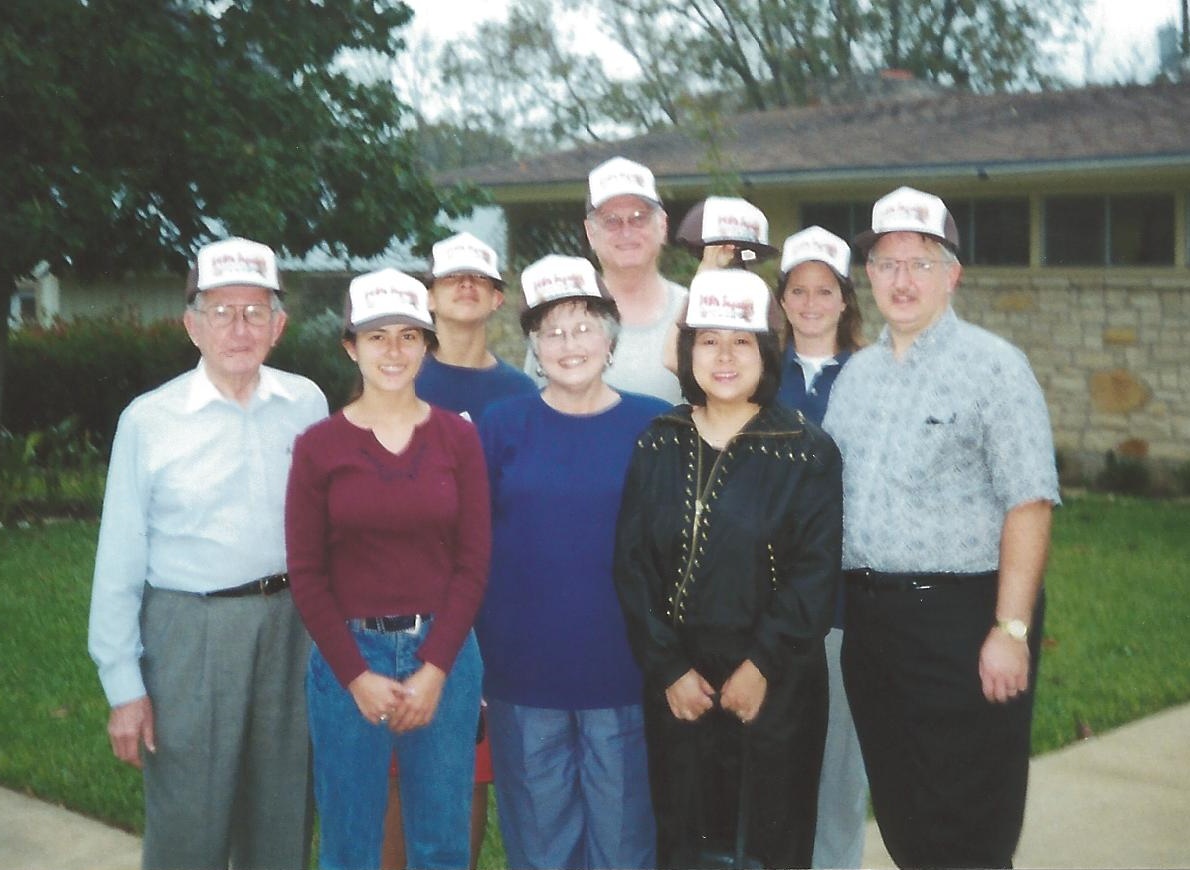That last visit was a precious gift from God. Although Daddy had struggled in his last years - as so many do at that age - with a fuzzy memory and mental faculties that weren't as sharp as they once were, that Saturday he was truly his old self. He was recalling family memories as if they were yesterday, and he was laughing and joking with us - and we had a wonderful time together as a family that day.
As the rest of the family said goodbye and started toward the door to allow workers to take him back to his room, my son Travis and I lingered behind for one more goodbye. I had a pretty strong feeling that I might never see him again in this life. One more time, I told him how much I loved him, and he told me the same - and how proud he was of the man I had become. What a gift! Thank you, Lord.
Dr. A. Jase (Atwood Jason) Jones was a special man. Most people - even Baptists - don't know his name, because he was never prominent in national leadership. Yet he spent 22 years (January 1957 through December 1978) with the SBC Home Mission Board's Department of Interfaith Witness, leading the department's work in about a dozen midwestern and southwestern states.
Daddy surrendered to the ministry in the late 1930s, only after struggling against God's call for quite a time. When he finally surrendered to God's call, he was a rising young assistant manager in the F. W. Woolworth chain. In fact, he was told he was being transferred to a store that everyone knew was the final stepping stone to being promoted from assistant manager to manager.
Unfortunately for Woolworth, their timing was all wrong. Daddy had recently decided to stop fighting God's call to the Gospel ministry. When he told his manager that he couldn't in good conscience accept the transfer because he had decided to go to seminary to study for the ministry, his manager laughed at him and said, "You're going to be a preacher? There's no money in that!"
But now Daddy was the one who was laughing. "Don't you think I know that?" Money, he explained, had nothing to do with his decision; it was all about being faithful to God's call.
Daddy had graduated from the University of Texas at Austin in 1936. He was a Texan through and through, having been born in Corrigan in 1913 and grown up in various Texas towns.
Daddy married my Mother, Vivian Louise Otting, in January 1938, and they would soon be starting a family (my sister, Patsy, was born in 1941), so a Woolworth manager's salary would have made life more comfortable, but that wasn't what Mother and Daddy were about. They would trust God to provide what they needed.
Read part 2: Seminary Student; Pastor; Home Missionary; and Chaplain
Read part 3: Maston Foundation; and At Home with His Family




